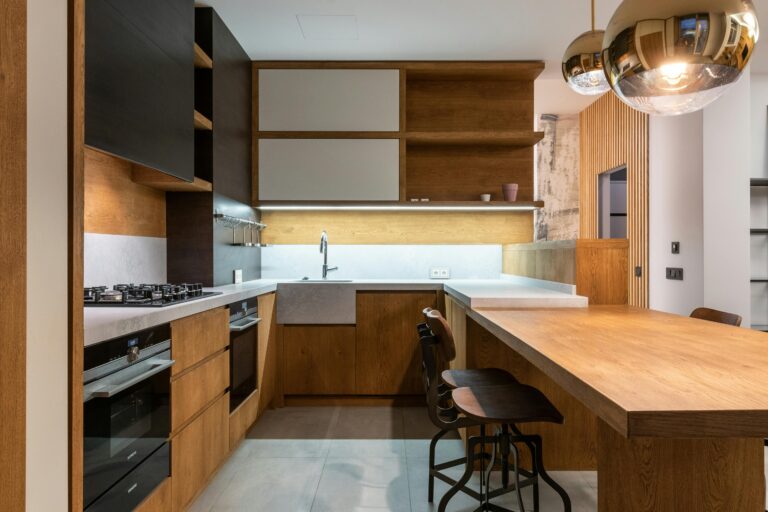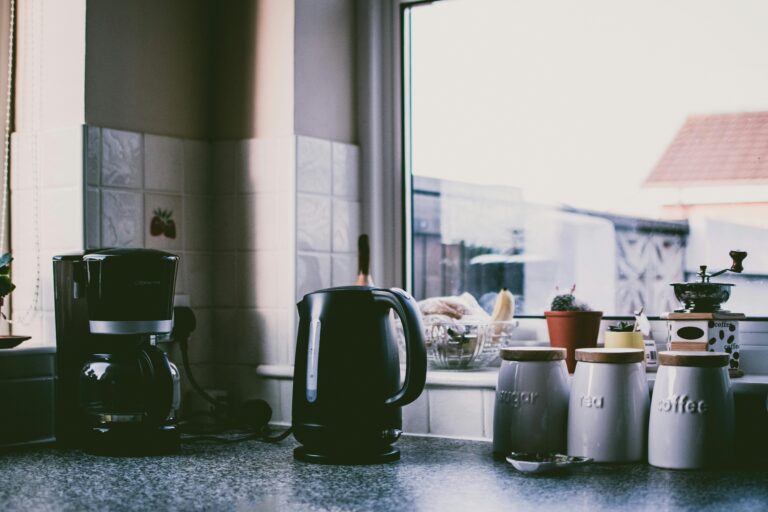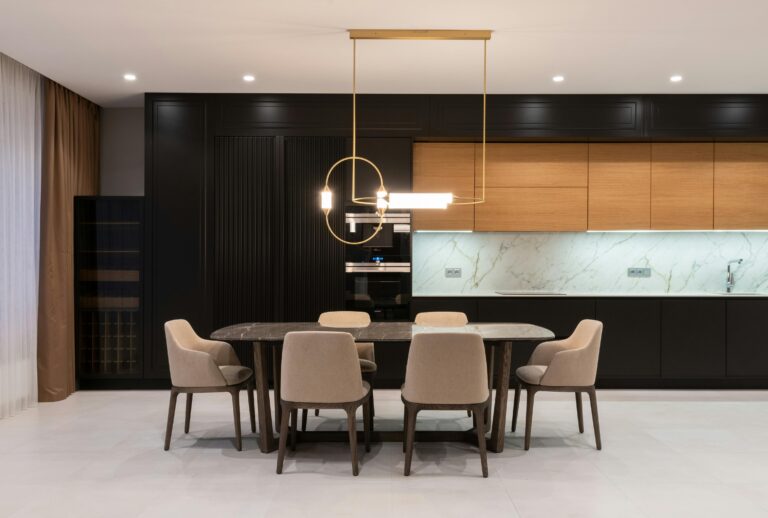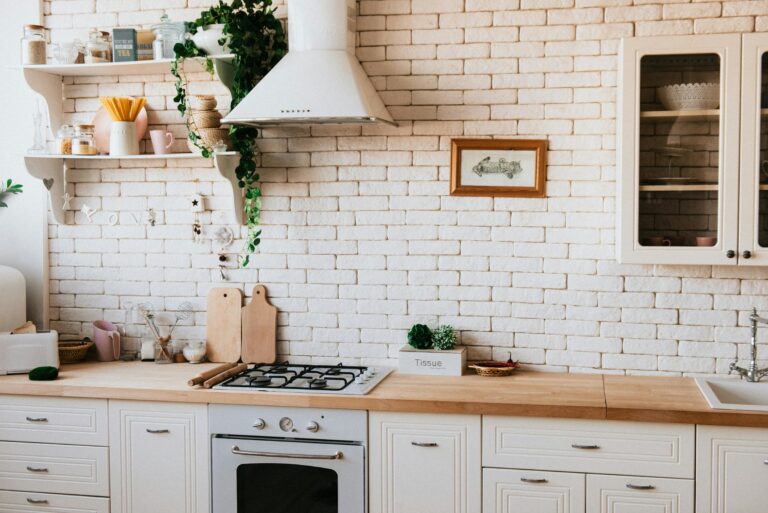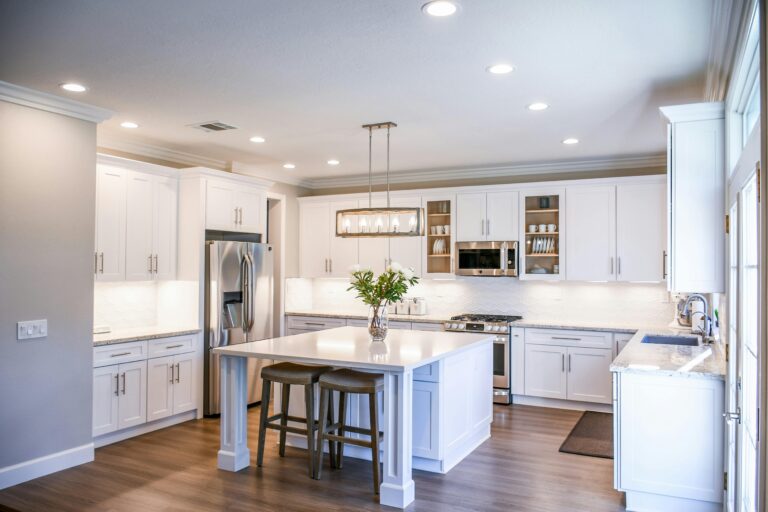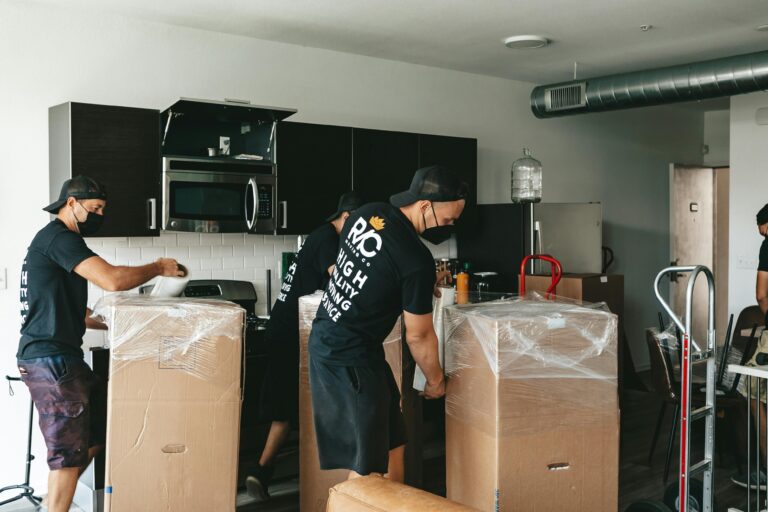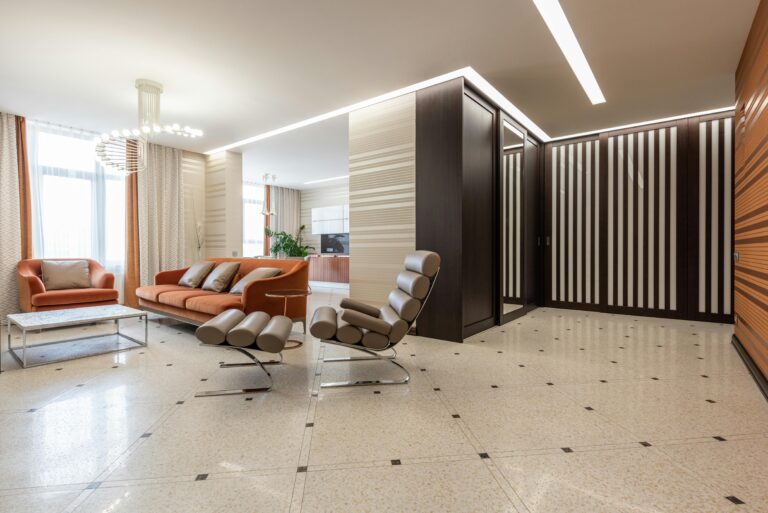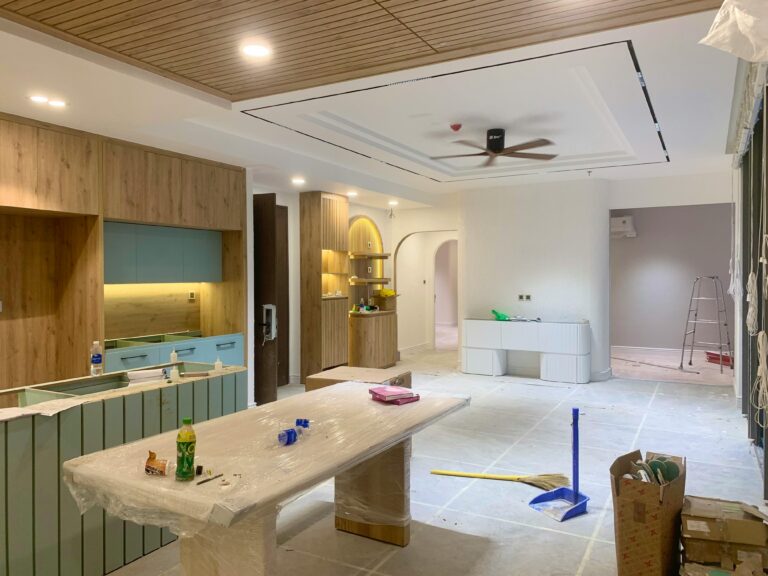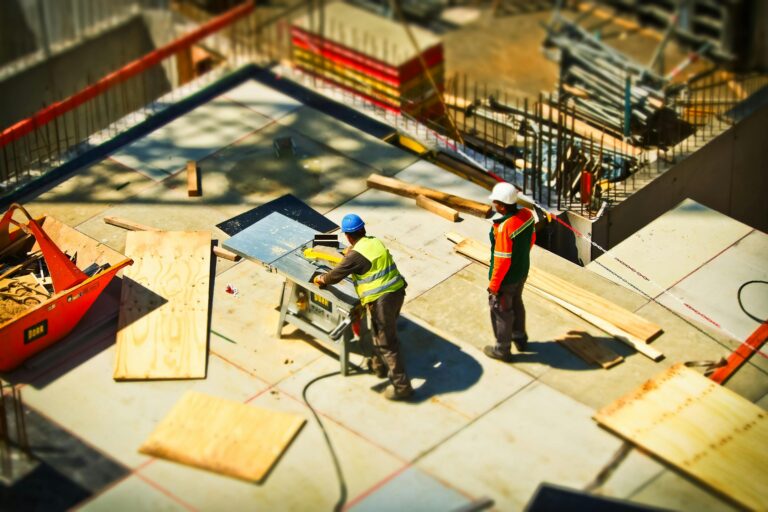Renovating your kitchen to have a rustic vibe could be the perfect solution if you have been dreaming of a warm haven away from the busyness of everyday life. Your kitchen becomes the focal point of your house when it has a rustic kitchen design, which adds coziness, charm, and a hint of nostalgia. However, what precisely is a rustic kitchen, and why would you pick this design? To create a room that feels both timeless and welcoming, rustic kitchens use natural materials, earthy hues, and timeless charm.
1. Design Elements of a Rustic Kitchen
(i) Natural Materials
- Wood
When designing a rustic kitchen, wood is a must. Selecting natural hardwood components for flooring, countertops, and cabinets brings warmth and an outside-in feel right away. Select recycled or damaged wood for a genuine rustic look. This gives your kitchen personality and a hint of the past at the same time.
- Stone
Rugged, earthy elements characteristic of rustic styles are enhanced when you use stone in your kitchen design, for example, with a granite countertop or stone backsplash. Stone combines strength and a natural element that goes well with wood.
(ii) Color Schemes
- Earthy Tones
Use earthy colors like browns, greens, and grays to make your kitchen feel calm and grounded. These hues help to create a unified style by reflecting the natural components utilized in rustic design.
- Warm Hues
Warm colors like mustard yellow, deep reds, and burnt orange may give your kitchen a homey, welcoming feel. The room feels more like home when these colors are used in fabrics, wall paints, and other decorative accents.
(iii) Vintage Accents
- Antique Fixtures
Use retro fittings such as lighting, cabinet handles, and faucets to accentuate the rustic charm. These components give your kitchen a hint of authenticity and nostalgia.
- Old-World Charm
Add retro or antique accessories, like vintage agricultural implements or wrought iron accents. These accessories give your room a distinct personality while adhering to the rustic style.
2. Cabinetry and Storage Solutions
(i) Custom wood Cabinets
- Handcrafted Designs
Rustic kitchens are often equipped with custom wooden cabinets. They add a distinctive touch and can be made to match your particular taste and storage requirements. Detailed details are a common aspect of handcrafted creations, adding to their rustic appeal.
- Reclaimed Wood
Reclaimed wood cabinetry gives your kitchen a rich, textured appearance while also being an environmentally friendly option. The worn look of reclaimed wood frequently adds to its rustic appeal.
(ii) Open Shelving
- Displaying Rustic Dishware
Your collection of old kitchen tools, antique jars, and rustic dishware will look fantastic displayed on open shelving. It makes everything cozy and comfortable while keeping your necessities close at hand.
- Practical Benefits
Beyond aesthetics, open shelves have the potential to be easier to clean and more space-efficient than traditional cabinets. They keep everything organized and help to lessen clutter.
3. Countertops and Backsplashes
(i) Durable Countertop Materials
- Granite
Granite’s natural beauty and longevity make it a popular choice for rustic kitchens. Granite’s distinctive patterns and textures give your kitchen area depth and appeal.
- Butcher Block
Butcher block counters add a more traditional look while offering warmth and a useful surface for preparing meals. For a rustic kitchen where style and utility go hand in hand, they are perfect.
(ii) Classic Backsplash Ideas
- Subway Tiles
Neutral-colored subway tiles are a timeless and adaptable option for rustic kitchens. They provide a simple background that softens the texture and goes well with natural materials.
- Stone Slabs
Using stone slabs as a backsplash can provide a striking impression. They offer a smooth, sophisticated appearance that elevates the rustic vibe and introduces a hint of opulence.
4. Flooring Options
(i) Wooden Floors
- Solid Wood
Solid wood flooring is a classic option that gives a rustic kitchen enduring beauty. It enhances the rustic design with its natural beauty and endurance.
- Engineered Wood
A superb substitute that has the appearance of solid wood but is more stable and resistant to moisture is engineered wood. It is therefore a sensible option for a kitchen setting.
(ii) Stone and Tile Options
- Slate
A superb substitute that has the appearance of solid wood but is more stable and resistant to moisture is engineered wood. It is therefore a sensible option for a kitchen setting.
- Terracotta
Your kitchen will seem cozy and rustic with terracotta tiles. Their organic color and texture variances enhance the rustic charm and foster a comfortable ambiance.
5. Lighting and Fixtures
(i) Ambient Lighting
- Chandeliers
In a rustic kitchen, a wood or wrought iron chandelier can provide a dramatic focal point. It not only adds lighting but also polish and personality to the space.
- Pendant Lights
Retro or industrial pendant lights can add a touch of style to a rustic setting while illuminating specific areas, including dining tables or work areas.
(ii) Task and Accent Lighting
- Under-Cabinet Lighting
It is useful to have under-cabinet lighting to light worktops and areas around cabinets. It adds a soft glow and improves your kitchen’s functionality.
- Spotlight Fixtures
Spotlight fixtures can draw attention to particular aspects or characteristics in your kitchen, including ornamental pieces or artwork. They give the area more visual appeal and depth.
6. Appliances and Modern Touches
(i) Stainless Steel Appliances
With the right selection, stainless steel appliances can look great in a rustic kitchen. Their modern style is well-balanced, thanks to the contrast between their polished appearance and rustic accents.
- Blending with Rustic Design
Choosing appliances with retro or vintage finishes that go well with the overall decor will help you incorporate stainless steel equipment into a rustic kitchen.
(ii) Hidden Technology
- Integrated Smart Features
Add integrated smart elements to your rustic kitchen to give it modern comfort. Appliances like refrigerators and smart ovens can be hidden to keep their rustic appeal.
- Concealed Storage Solutions
Concealed storage options offer contemporary functionality and aid in maintaining an orderly, clutter-free kitchen. This method delivers useful advantages without sacrificing the rustic appearance.
7. Decor and Accessories
(i) Textiles and Rugs
- Cozy Fabrics
Use warm materials like wool or linen for table runners, drapes, and cushions. These materials give off a cozier, cozier vibe while offering warmth and comfort.
- Rustic Patterns
In carpets and other fabrics, rustic patterns like plaid or flowers give character and enhance the design. You can use these designs to connect different kitchen items.
(ii) Wall Art and Decorations
- Vintage Signs
Your kitchen can be made to seem more unique by adding antique signage and mementos. They add character and a touch of nostalgia to the room while enhancing the rustic vibe.
- Handcrafted Pieces
Include handmade items in your rustic kitchen, such as wooden carvings or pottery, to give it personality and uniqueness.
8. Furniture for a Rustic Kitchen
(i) Farmhouse Tables
- Size and Shape
A rustic kitchen’s ideal focal point is a farmhouse table. Select a table that is appropriate for the size of the area and blends in with the overall style. Rustic environments lend themselves nicely to long, robust tables with a distressed appearance.
- Complementary Chairs
Select complementary chairs that go well with the rustic motif when setting up your farmhouse table. Seek out upholstered chairs with retro fabrics or wooden chairs with straightforward designs.
(ii) Rustic Bar Stools
- Material Choices
Wooden or metal rustic bar stools can add to the beauty of your kitchen. To fit the rustic theme, choose stools with handcrafted elements or a weathered appearance.
- Style Tips
Select bar stools that complement the style of your kitchen. To tie in with the rustic motif, think about choosing stools with clean lines or features inspired by the past.
9. Open Layout vs. Traditional Layout
(i) Open Concept
- Advantages
Rustic kitchens are ideal for open-concept layouts because they create a feeling of space and airiness. It fosters conversation and makes the space feel friendly.
- Considerations
Even though an open floor plan is fantastic for hosting, it takes careful planning to make sure the rustic accents are blended and look well.
(ii) Traditional Layout
- Benefits
Traditional layouts might be more space-efficient and provide distinct spaces. It enables the construction of a kitchen that is more ordered and structured.
- Space Efficiency
Consider adding rustic touches to some sections of a classic layout, like using salvaged wood for cupboards or giving the appliances a vintage feel.
10. Eco-Friendly Renovation Tips
(i) Sustainable Materials
- Recycled Wood
One excellent way to embrace sustainability is to use repurposed wood for flooring and cabinets. Reclaimed wood lessens the environmental impact while adding charm.
- Eco-Friendly Paints
Choose low-volatile organic compound (VOC) paints and finishes that are environmentally friendly. These choices are better for the environment and your health.
(ii) Energy-Efficient Solutions
- LED Lighting
LED lighting is a cost-effective option that lowers electricity usage and enhances rustic style. It maintains practicality without sacrificing warmth or coziness.
- Low-Flow Fixtures
Low-flow shower and faucet fixtures preserve functionality while reducing water usage. They are a useful complement to a rustic, green kitchen.
11. Budgeting for a Rustic Kitchen Renovation
(i) Cost Breakdown
- Major Expenses
Take into account the cost of essential components like flooring, countertops, and cabinets while organizing your renovation. The majority of the budget is frequently allocated to these items.
- Hidden Costs
Take into account unforeseen expenses, permits, and installation fees as examples of hidden costs. You can keep your project on schedule and prevent surprises by budgeting for it.
(ii) Saving Tips
- DIY Projects
Do-it-yourself initiatives can lower expenses and give your renovation a unique touch. Think about doing things yourself, such as painting or constructing shelves.
- Sourcing Materials
To save money, look for reused or inexpensive materials. Purchases in online marketplaces or salvage yards can result in unique items at a reduced price.
12. Hiring Professionals vs. DIY
(i) Pros of Hiring Professionals
- Expertise
Engaging experts guarantee that your remodeling project is completed to the highest caliber. Experts can help avoid costly errors by contributing their experience and knowledge.
- Time Efficiency
Experts can finish the job faster than do-it-yourselfers, letting you enjoy your newly remodeled kitchen more immediately.
(ii) DIY Tips
- Common Mistakes
Be mindful of typical blunders such as poor finishing or incorrect measurements when taking on DIY projects. Plan and do extensive research to steer clear of these hazards.
- Essential Tools
Purchase the necessary supplies and tools for your do-it-yourself project. The results of your renovation might be greatly impacted by the quality of your tools.
13. Maintenance and Upkeep
(i) Cleaning Rustic Surfaces
- Wood Care
To keep wood looking its best, regular cleaning and conditioning are required. Preserve the natural beauty of the wood by using gentle cleaners and steering clear of excessive dampness.
- Stone Maintenance
Use a pH-balanced cleanser on stone surfaces and stay away from anything acidic, as this might cause harm to the stone. Frequent sealing can aid in stain and wear resistance.
(ii) Preventive Measures
- Avoiding Wear and Tear
Use preventive steps, such as placing trivets beneath hot pots and avoiding abrasive cleaning products, to avoid wear and tear.
- Regular Inspections
To spot problems early and take appropriate action, conduct routine inspections. This keeps your rustic kitchen’s integrity and aesthetic intact.
14. Conclusion
Your cooking area can become a cozy, welcoming environment with lots of charm and character with a rustic kitchen renovation. You can design a kitchen that is both elegant and useful by emphasizing natural materials, retro touches, and workable solutions. Whether you want to go with sturdy counters, handcrafted wooden cabinets, or warm textiles, a rustic kitchen has an enduring charm.


